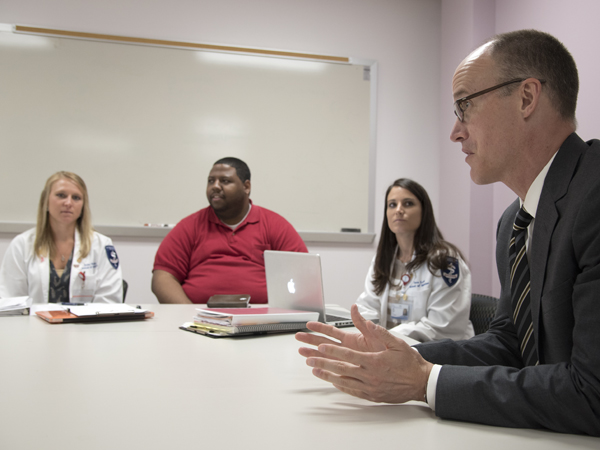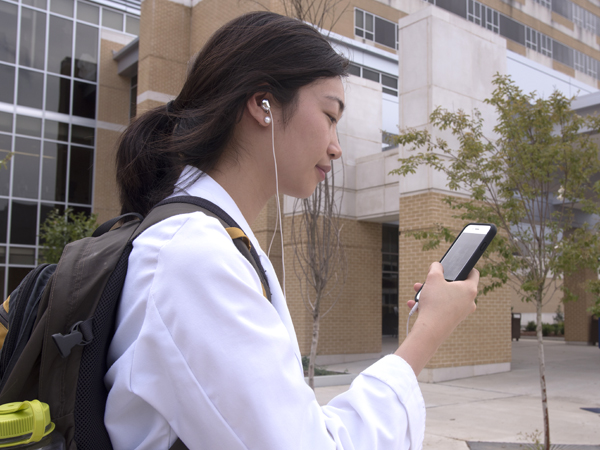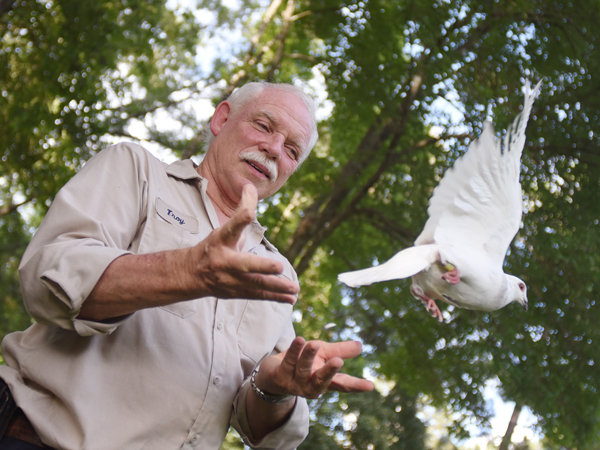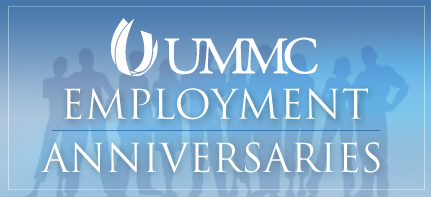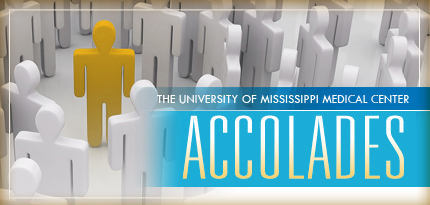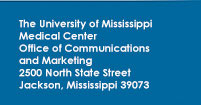|
The Medical Center is proud to acknowledge those employees who will celebrate service anniversaries this week: 50 Years Frankie Gaines, phlebotomy supervisor, Adult Hematology Lab 25 Years Beverly Brown, medical technologist, Adult Hematology Lab 20 Years Kimberly Bryant, inpatient nurse, Winfred L. Wiser Hospital for Women and Infants (3 MBU) Ida Fowler, anesthesia technician supervisor, Anesthesia Doris Nowell, information clerk, Biomedical Illustration Services 10 Years Jenny Walker, administrative assistant, Finance 5 Years Dr. Mohammad A. Ali, assistant professor of radiology Jesse Austin, biomedical engineering technician, Inpatient Dialysis Betty Bain, inpatient nurse, Medical Surgical Float Linda Butler, inpatient nurse, University Hospital (4 North) Stephanie Christian, physical therapist, University Physicians Pavilion (Physical Therapy) Sandra Donald, unit secretary, 2 MICU Alan Dukes, pharmacist, Pharmacy Dr. Fan Fan, instructor in pharmacology and toxicology Dr. Maxime Freire, assistant professor of radiology Kurt Gruneberg, IT clinical solutions strategist, Information Systems Dr. Heather A. Hancock, assistant professor of ophthalmology Robyn Herring, education administrator, School of Medicine (Academic Affairs) Brenda Hope, cardiovascular stepdown nurse, Batson Children's Hospital (5C) Connie Lee, inpatient nurse, University Hospital (Surgical Suite) Sarah Little, cardiovascular stepdown nurse, Batson Children's Hospital (5C) Erica McCullum, inpatient nurse, University Hospital (5 North) Terese Myers, medical assistant, University Physicians (Lakeland Otolaryngology) Shalaundrea Rachal, administrative assistant, School of Medicine (Neurology) Kala Richardson, medical office assistant, University Physicians (Neurology Administration) Annette Russell, inpatient nurse, University Hospital (4 North) Donald Smith, technician, Environmental Services Martha Smith, medical office assistant, University Physicians (Lakeland otolaryngology) Rochelle Stepro, dental hygienist, School of Dentistry (Oral and Maxillofacial Surgery and Pathology) David Strong, flight/transport nurse, Helicopter Transport Gabriel Thomas, EKG technician, University Hospital (Respiratory Therapy) Juan Tucker, chief perfusionist, School of Medicine (Pediatric and Congenital Heart Surgery) Brandon Wallen, IT support analyst, Information Systems Shelvalian Ware, field support manager, Information Systems Aarolyn Williams, respiratory therapist, University Hospital (Respiratory Therapy)
|

